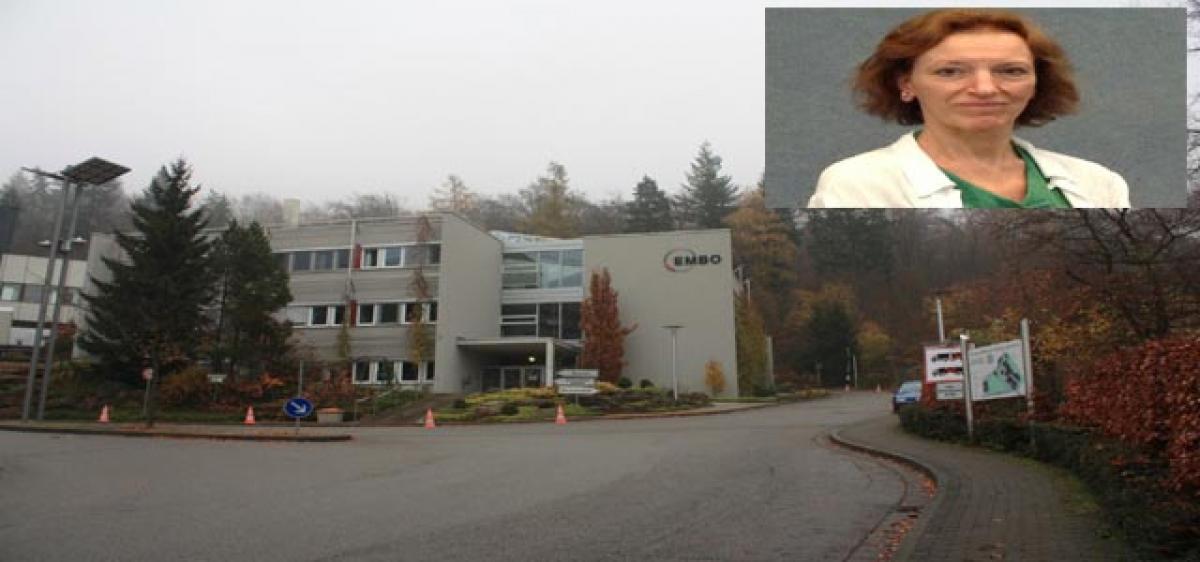Live
- Chanchalguda Jail Officials Say They Haven't Received Bail Papers Yet, Allu Arjun May Stay in Jail Tonight
- BJP leaders present evidence of illegal voters in Delhi, urge EC for swift action
- Exams will not be cancelled: BPSC chairman
- Nagesh Trophy: Karnataka, T.N win in Group A; Bihar, Rajasthan triumph in Group B
- YS Jagan condemns the arrest of Allu Arjun
- Economic and digital corridors to maritime connectivity, India and Italy building vision for future, says Italian Ambassador
- SMAT 2024: Patidar's heroics guide Madhya Pradesh to final after 13 years
- CCPA issues notices to 17 entities for violating direct selling rules
- Mamata expresses satisfaction over speedy conviction in minor girl rape-murder case
- Transparent Survey Process for Indiramma Housing Scheme Directed by District Collector
Just In

A considerable number of Indians are already engaged in research at European facilities. However, there is a need to enhance movement in the reverse direction too, says the Director of the European Molecular Biology Organisation (EMBO).
A considerable number of Indians are already engaged in research at European facilities. However, there is a need to enhance movement in the reverse direction too, says the Director of the European Molecular Biology Organisation (EMBO).
"We have many excellent Indians here. On the contrary, we think it is necessary that Europeans begin to go to India and choose it as a country to do research. It is beginning to happen. There is good traffic in one direction and we should enhance the traffic in the other direction and that is one part of what cooperation is all about," EMBO Director Maria Leptin told this correspondent in a telephonic interaction from Heidelberg.
EMBO is an organisation of more than 1,700 leading researchers that promotes excellence in life sciences. Its programmes and activities are funded by the European Molecular Biology Conference (EMBC). The EMBC, founded in 1969, is an inter-governmental organisation comprising 33 member- and partner-states, including India, which came under its fold in February 2016.
Leptin says India's participation has picked up momentum during the year and it has been "an open interaction without any difficulties" in encouraging young Indian researchers to push boundaries both geographically and intellectually. But she observed that Indian scientists are at a "comparative disadvantage" in their home arena due to red tape and other factors that may deter research.
"There are issues some researchers face because doing science in India is a lot more difficult than doing science in the US or Europe because of the red tape, obtaining reagents and the like that puts Indian scientists at a comparative disadvantage. India will advance by making its science infrastructure more efficient," she said.
Leptin, who as a developmental biologist has "highly appreciated and much-loved" colleagues in India, heaped praise on the south Asian nation's "long-standing" expertise in physics, mathematics, immunology, cell biology and developmental biology. She also expressed excitement at the emerging areas which could act as pull-factors for foreign researchers to come to India to study further.
"There's a lot of new development in imaging in-vivo brain imaging and neuroscience is very much a growing field. Ecology, evolution and environmental science and genomics are very important. Countries like India might have an interest in marine biology. There isn't a good tropical marine biology station in the world, and India would be a great country to pursue that," she highlighted.
Leptin said EMBO expects "top quality applications" from young Indian researchers who wish to acquire funding. Asked about the European Union's decision to stop funding Indian scientists in collaborative projects, Leptin affirmed EMBO is "completely independent" of EU.
"We are independently financed by member-states. We see no problem at all. We will encourage non-Europeans," she said. Advocating encouraging young researchers, Leptin expressed concern over researchers being tricked into publishing in predatory publications. "It's horrible, it's bad. In terms of authors being accosted by these publishers, this problem is everywhere (across the world)," she said.
As pointers to youngsters, Leptin batted for churning out good work over the frenzy of publishing in journals with a high-impact factor. "Work is more important. We have signed the San Francisco Declaration on Research Assessment (DORA). We don't think impact factors matter so much.
Of course, people have to publish well and publish in serious (and I don't say high impact peer reviews) journals," she signed-off. The San Francisco DORA, initiated by the American Society for Cell Biology together with a group of editors and publishers of scholarly journals, recognises the need to improve the ways in which the outputs of scientific research are evaluated.
By Sahana Ghosh

© 2024 Hyderabad Media House Limited/The Hans India. All rights reserved. Powered by hocalwire.com







